Listening in the Dark
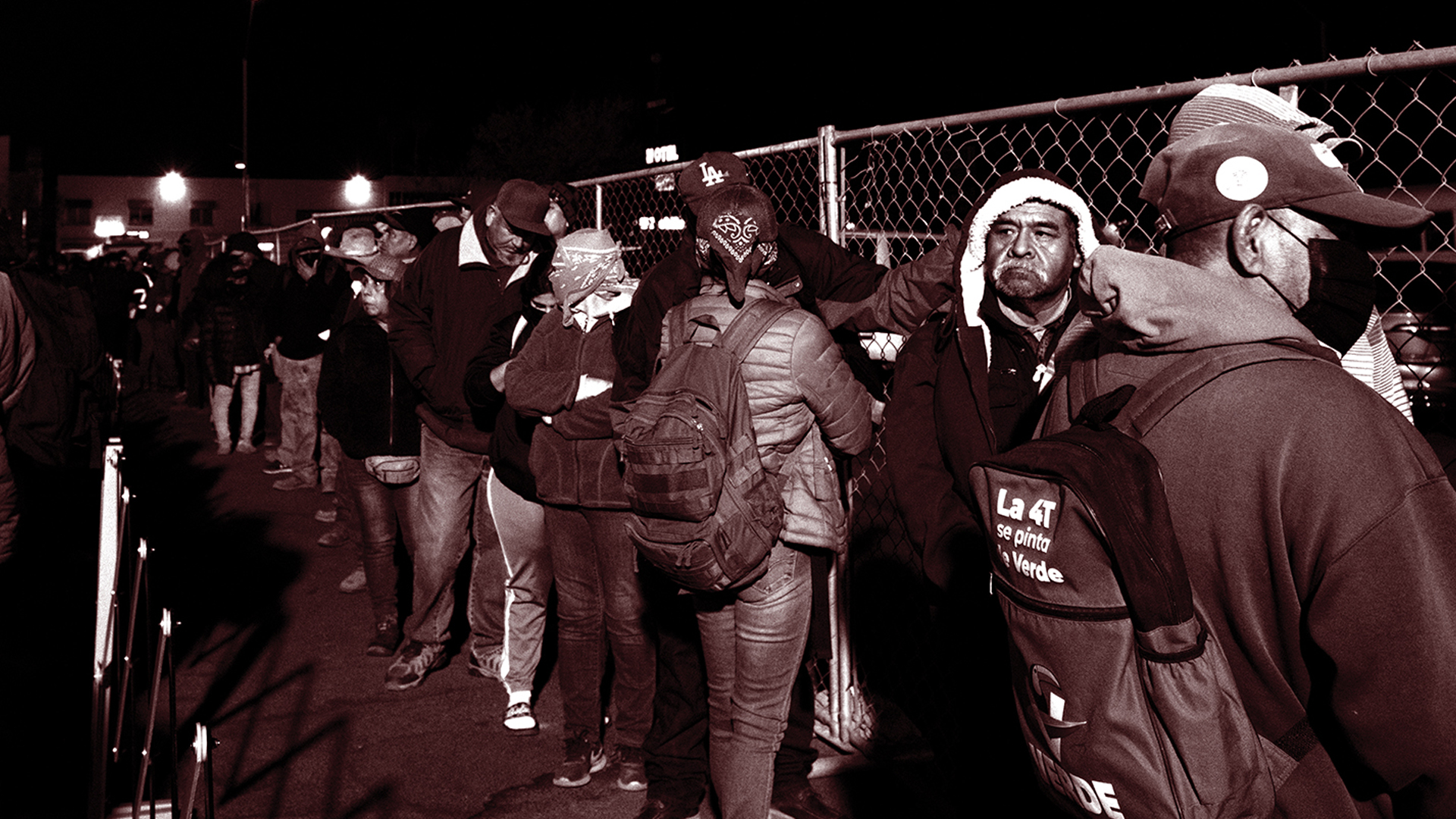
In the early morning hours, the annual Día del Campesino celebration and health fair offers farmworkers access to essential screenings, including hearing exams from SDSU’s mobile hearing clinic.
By Peggy Pico
Photographs by Arturo Rivas
THE FRIGID MIDNIGHT HOUR ON Dec. 6, an unusually early day begins for approximately 4,000 farm workers in Yuma, Arizona. They’re lining up for the 2 a.m. opening of Día del Campesino. Translated to the Day of the Farmworker, the annual celebration and health fair offers workers access to essential screenings, including hearing exams.
Among the dozens of popup tents, SDSU’s mobile hearing clinic is a popular stop. Audiologist Laura Coco Ph.D., AuD, an assistant professor of audiology in the School of Speech, Language, and Hearing Sciences, and her team of current and past SLHS students offer free hearing tests, ear protection, assessments and referrals to local care providers. On a future date, the team provides follow-up care: free hearing aid fittings, ear cleanings and more.
Working both outside in the cold and inside a small trailer turned audiology clinic, Coco and Tucson audiologist Judy Huch examined more than 50 people. They also gather data on the often-overlooked hearing hazards of prolonged exposure to loud tractors, machinery and pesticide-related toxins.
As the sun nears the horizon, the once bustling fair comes to a close. Farm workers— many with orange foam earplugs in hand—are bused to their jobs, and Coco and her team pack up the trailer. They will be back next year.
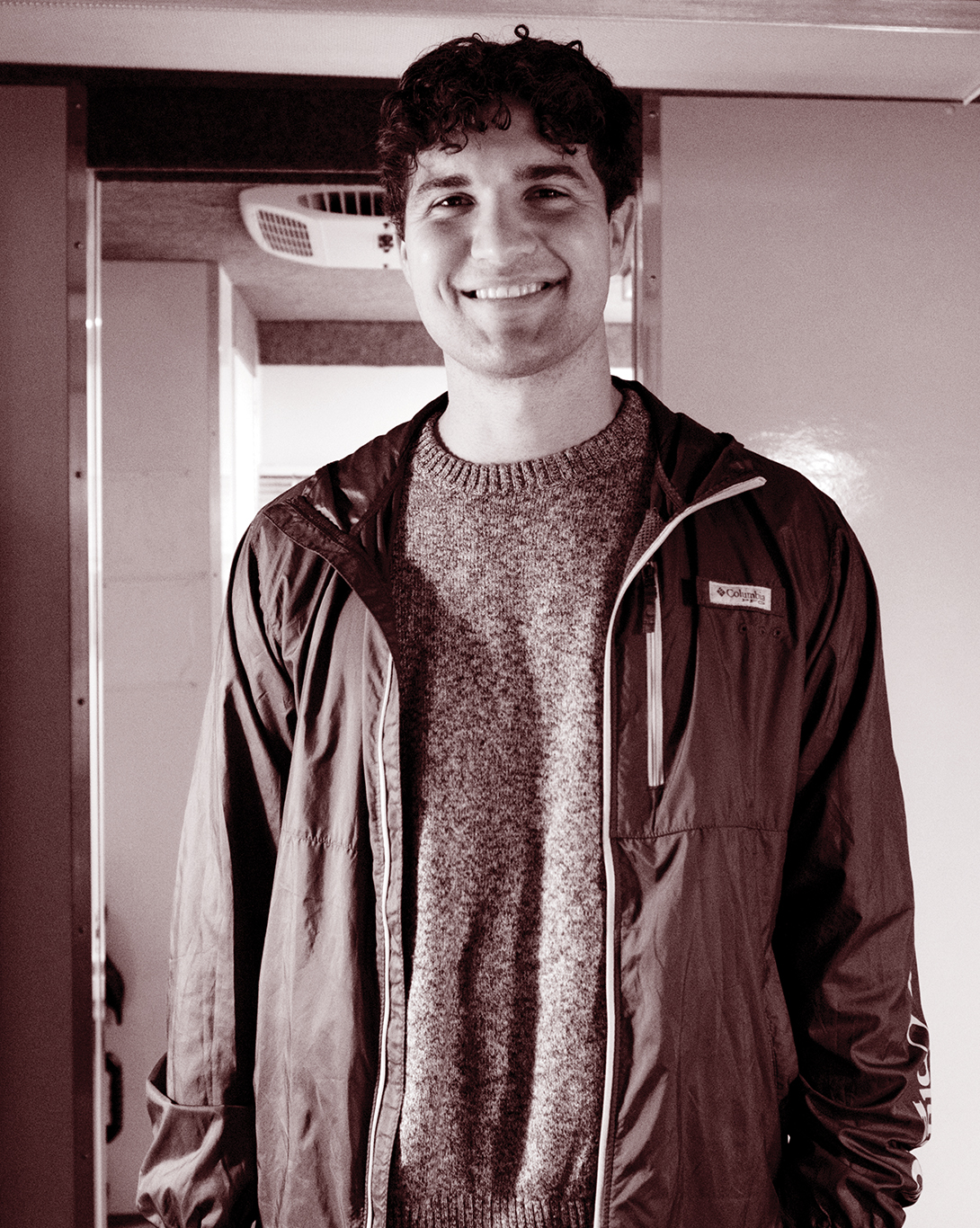
Colten Mouzin, a doctor of audiology student in the SDSU–UCSD Joint Doctoral Audiology Program, is a fourth-generation farmer. “Since I was age 10, I spent every summer working in the fields along side migrant workers from Mexico,” says Mouzin, who grew up in Indiana. “They inspired me, and I learned so much from them. That drew me to this opportunity with Dr. Coco.”
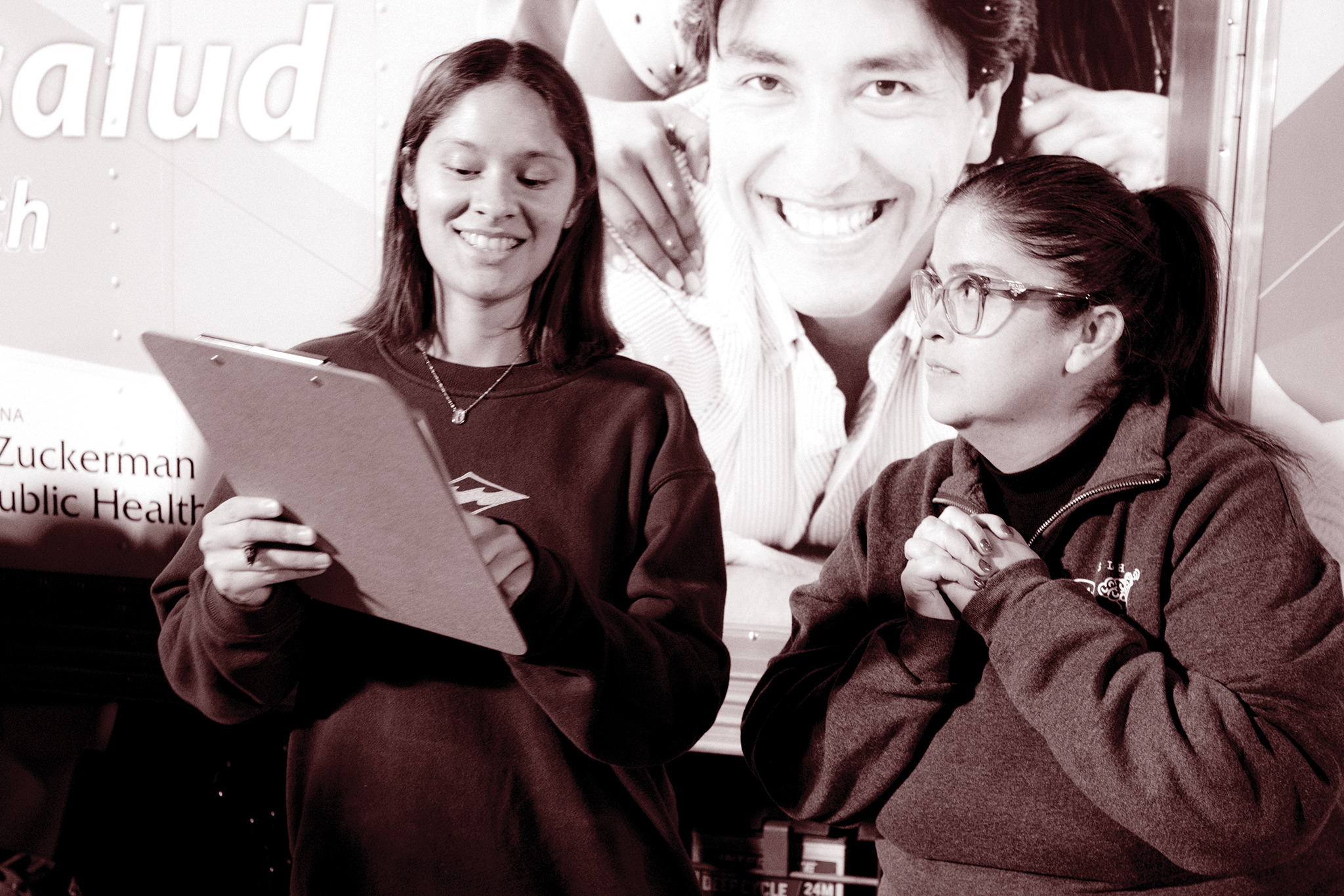
A task for Alejandra Garza, an SDSU student, and Gabriela Sanchez (’22) includes conducting surveys on noise exposure, hearing concerns and demographics, providing essential data for medical referrals and research data.
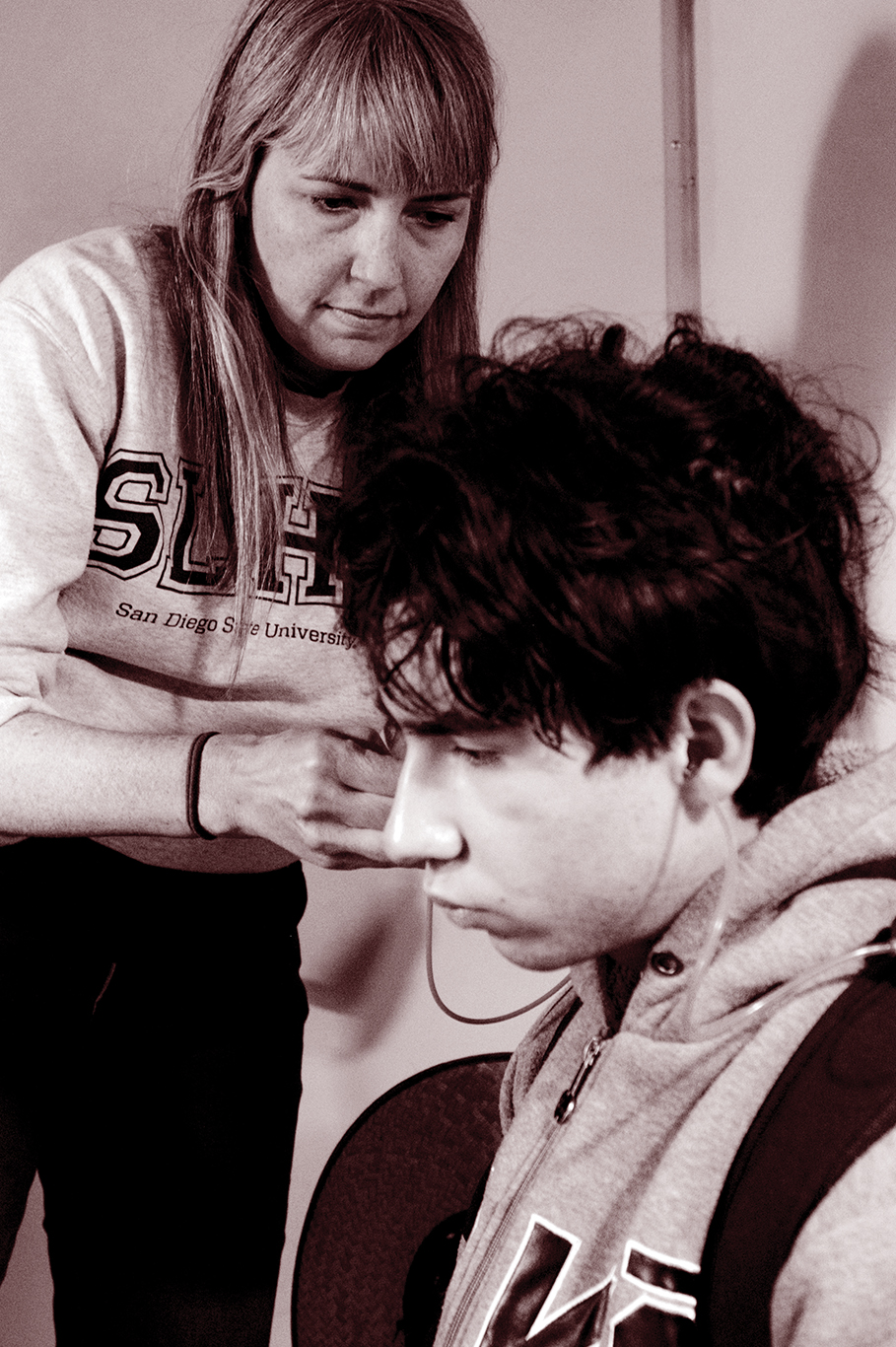
Coco, who came to SDSU in 2022 after completing her postdoctoral research fellowship at Oregon Health & Science University, is also the director of SDSU’s Community-Engaged Research for Communications Access Lab (CERCA), which is dedicated to research that improves access to and equity of hearing care for adults.
This is the third consecutive Día del Campesino for Coco. She says that the most common problems she sees with patients are impacted ear wax and ear infections.
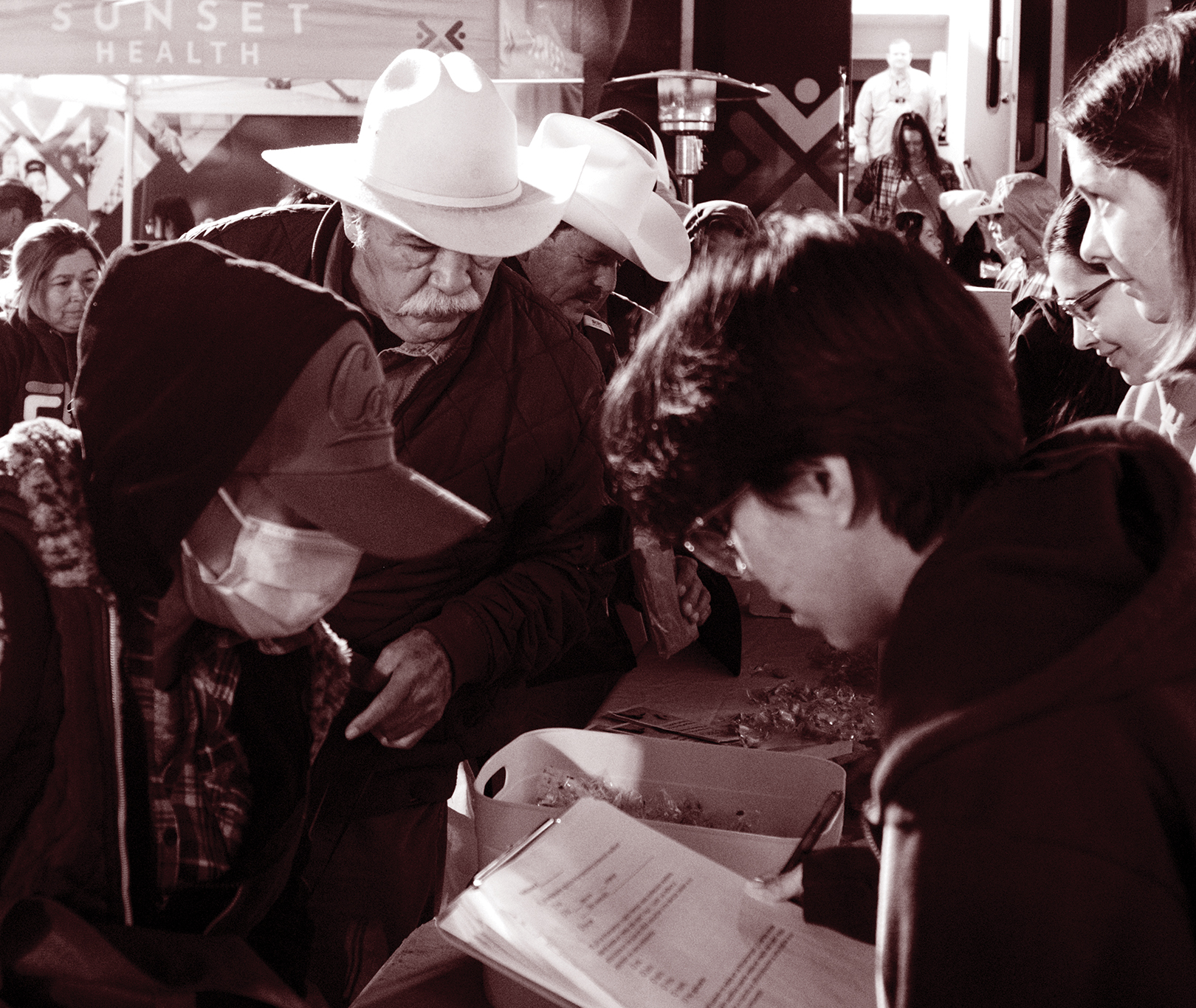
Alyssa Ramirez is one of seven SLHS students who volunteer at the event with Coco. The interaction with the farmworkers gives them real-world experience and prepares them for a career.

The fair isn’t all business. Volunteers at booths give out complimentary bagged breakfasts, tamales and much-needed coffee.
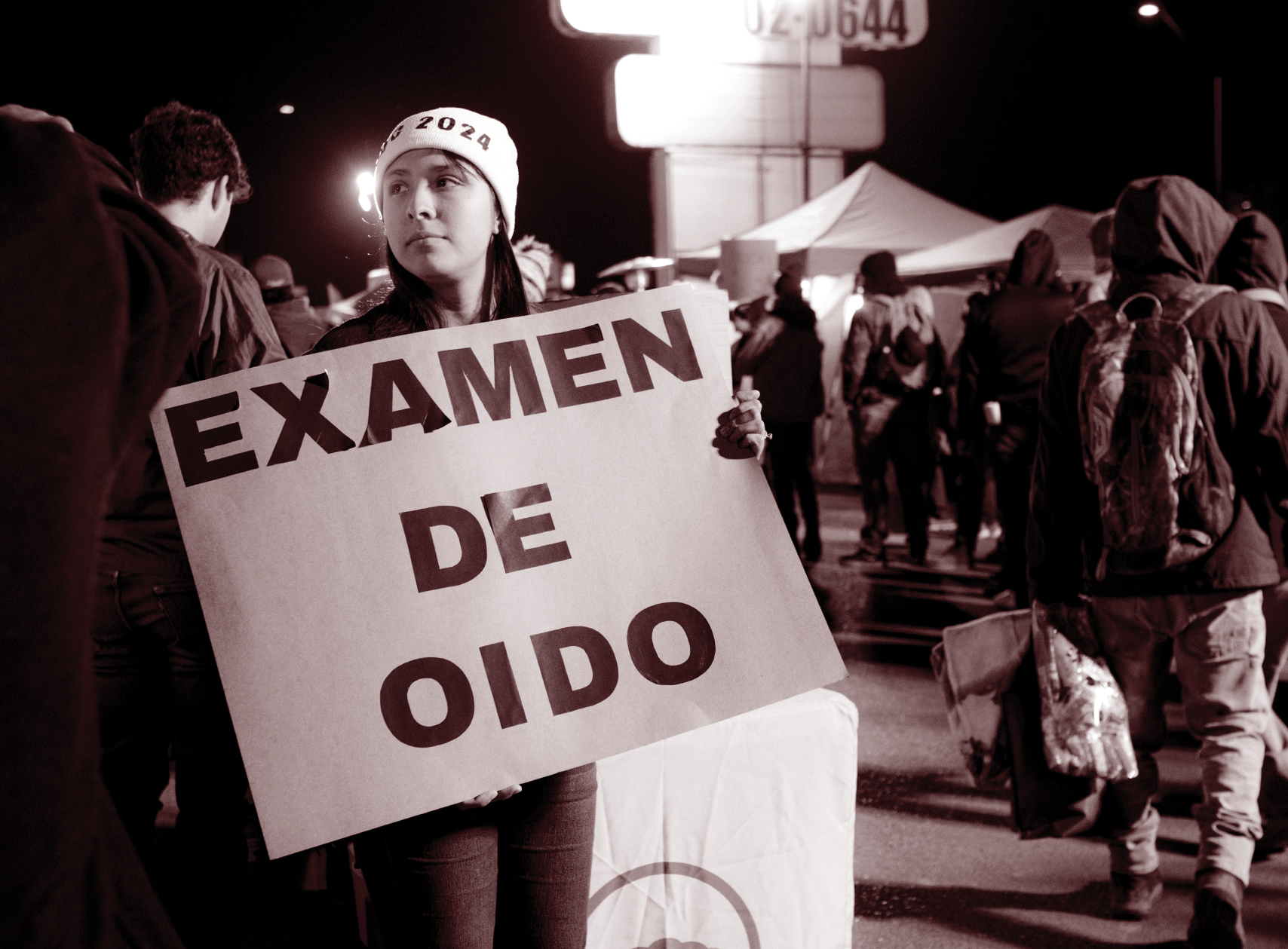
A volunteer with the event organizer, Campesinos Sin Fronteras, advertises “Examen de Oido,” which translates to ear exams. After the exams, Coco and her team are committed to follow-up care. Brochures in English and Spanish help ensure that the farmworkers get the services they need.
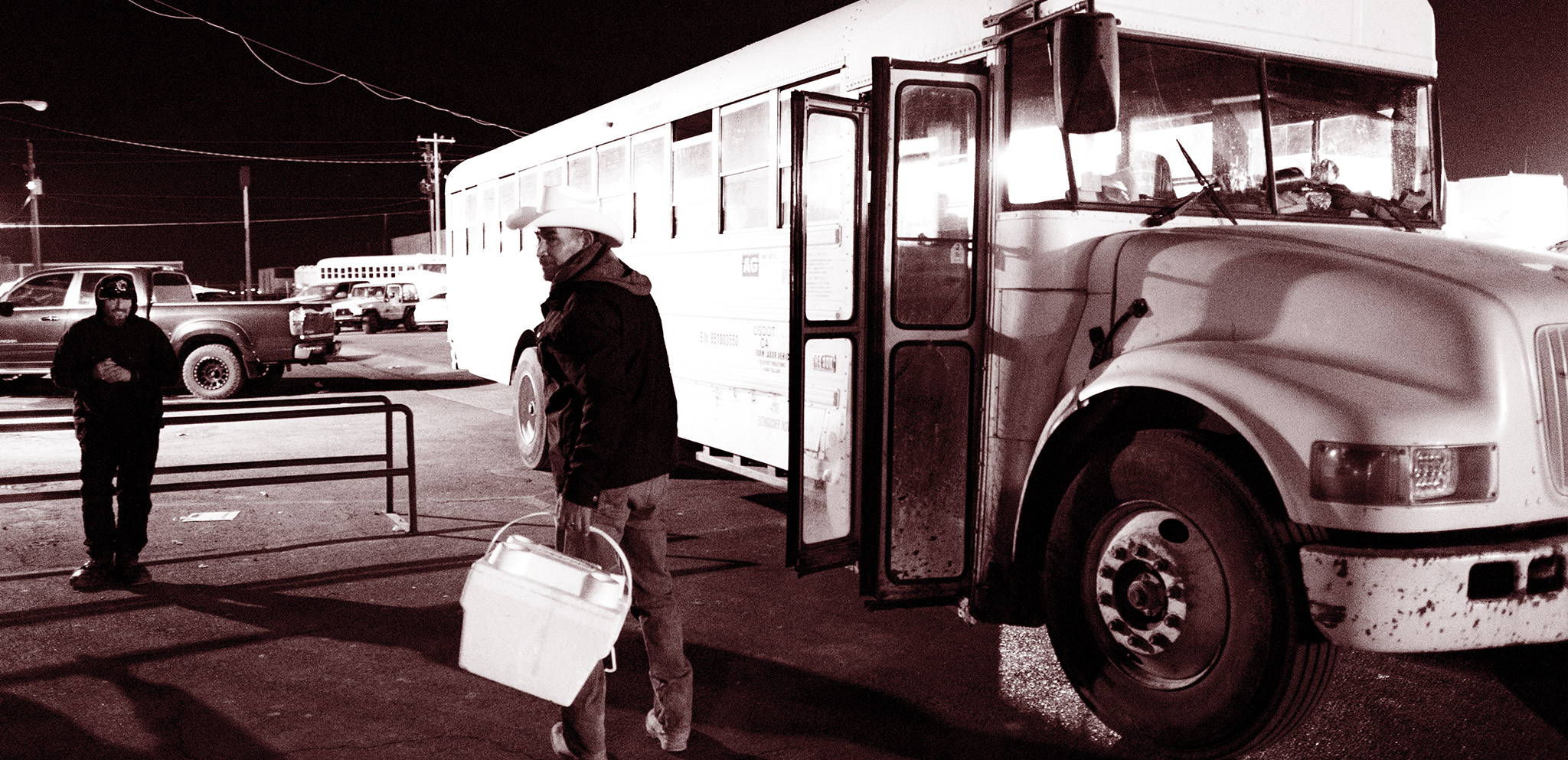
At 5 a.m., the workday is just beginning for the farmworkers in attendance. After a whirlwind of health screenings, this worker boards the last bus to start his 12-hour shift harvesting produce in a nearby field.
